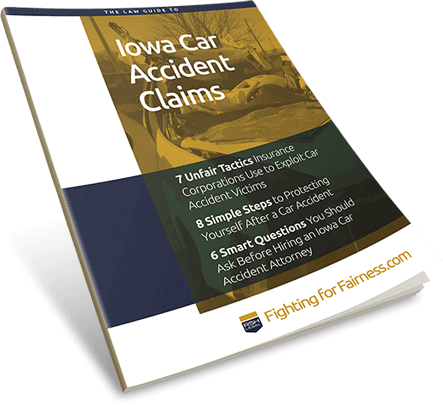Car accidents cause more than just physical injuries—they can also cause mental health injuries like depression, anxiety, and in some instances Post Traumatic Stress Disorder (also known as PTSD).
Mental Health Conditions after an Iowa Car Crash
Unfortunately, it’s not uncommon for people in car crashes to suffer chronic pain from their injuries. According to the Mayo Clinic, chronic pain can cause several problems that can lead to depression, such as trouble sleeping and stress. Pain that limits function can lead to job loss, financial issues, and an inability to engage in hobbies, all of which can lead to low self-esteem.
The trauma of an accident may result in anxiety or Post Traumatic Stress Disorder (PTSD). PTSD has a very defined set of diagnostic criteria that must be met. A qualified counselor, doctor, psychologist, or psychiatrist can diagnose mental health conditions.
Damages You Could Receive After a Car Accident in Iowa
In Iowa, car accidents causing physical or mental injuries allow victims to seek compensation for mental health damages.
If an accident-related mental health injury results in temporary or permanent job loss, you can seek compensation for lost wages. If you need medical care to treat your Mental wellness injury, you can recover for past and future medical bills. Finally, if you suffer mental anguish, you can recover compensation for your suffering and loss of function.
In Iowa, to claim car accident-related mental health compensation, get medical proof and consult a personal injury attorney.
How to Seek Help for Your Mental Health Claim
It can be very difficult to recognize and even admit that you’re having emotional health concerns resulting from a car crash. It is extremely normal for men and women alike to suffer some psychological well-being symptoms, even temporarily, after a physical injury. You’re doing yourself and your loved ones a favor if you admit that you need help and seek it.
If you don’t already have a counselor, psychologist, or psychiatrist, often the first step in getting treatment is to see your primary care provider.
Most doctors and nurse practitioners are trained in the basic diagnosis and management of mental wellness disorders. Doctors may prescribe anti-depressant or anti-anxiety medications, or they may recommend you seek counseling. If your depression is pain-related, your doctor may refer you to a pain management specialist or a pain rehabilitation program.
If you don’t know where to start, you can always ask your attorney. We aren’t medical providers, but we have had many, many clients who have suffered from mental health injuries after a car crash. We can offer you some tips to point you in the right direction.
If you feel like you are a danger to yourself or others, you should not wait for an appointment, you should visit your local emergency room or call the National Suicide Hotline. It recently changed its number to 988.
There are also various local agencies depending on where you live. Here in Cedar Rapids, Iowa, a good resource is Foundation 2 Crisis Services. You can visit their website or you can call them if you are in crisis at 319-362-2174.
You are not alone. If you need help with a mental health claim after a serious car accident, contact RSH Legal today at 1-800-433-0283.




